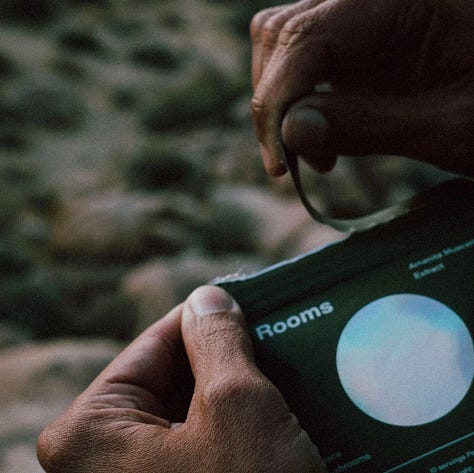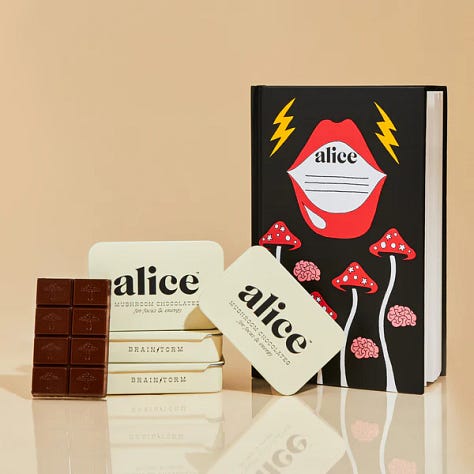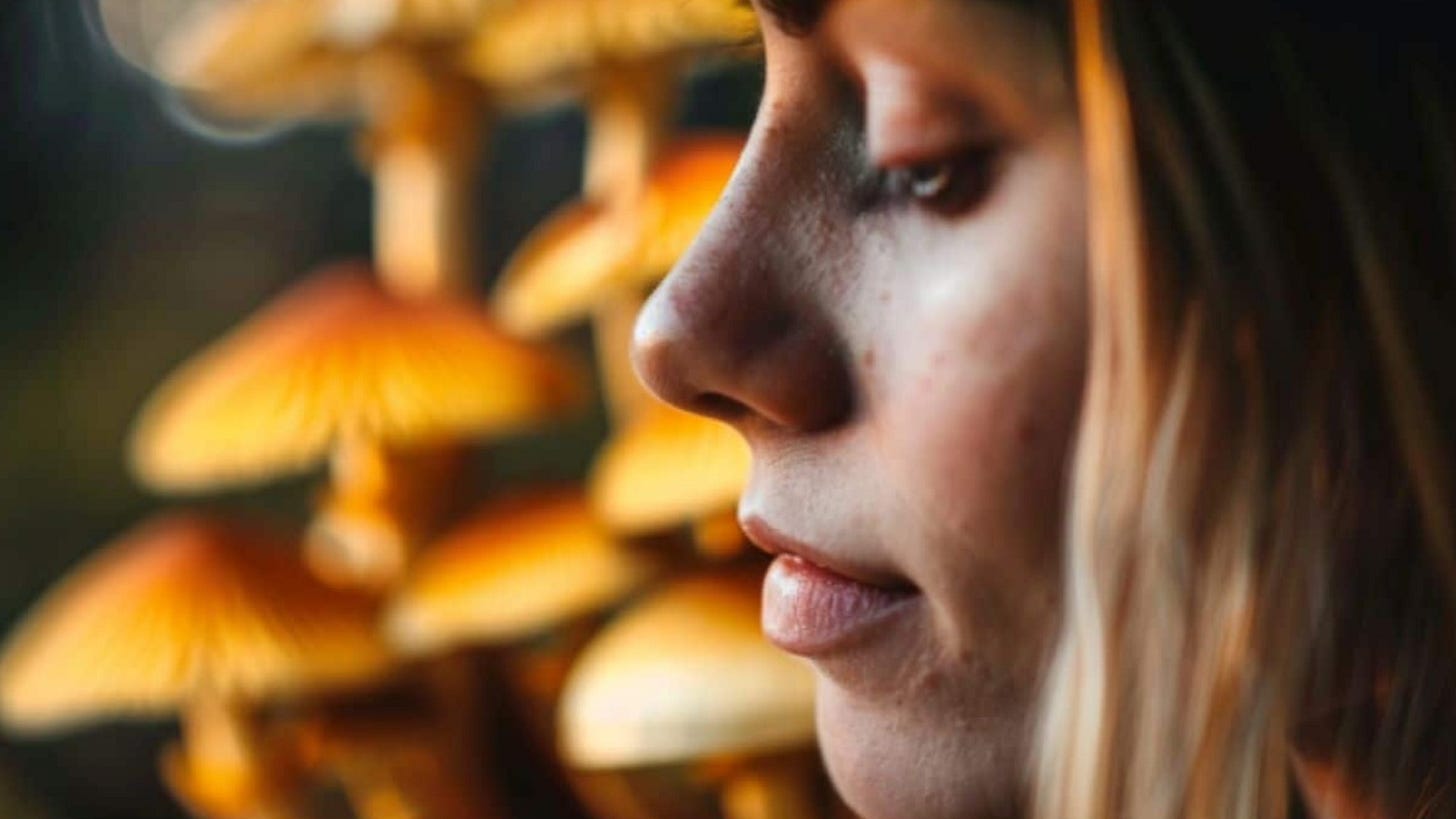Mental wellness is taking an interesting turn: from adaptogens and ashwagandha to psilocybin and ayahuasca. What was once fringe is becoming functional with psychedelics stepping into the spotlight. The West's growing interest in alternative healing, from Ayurveda and Traditional Chinese Medicine to shamanic rituals, is now bringing a new wave of psycho-spiritual exploration.
With Silicon Valley’s dual obsessions (optimisation and mysticism) we see billionaires and biotech entrepreneurs pushing psychedelic legislation forward. Just look at institutions like MAPS, that are driving the conversation into clinical territory or The European Citizens' Initiative, calling for regulated access to psychedelic-assisted therapy. But how does it manifest for consumers? Here are a few ways:
🍄 Controlled Use Settings: The New Retreats
A new generation of retreats are starting to offer curated access to expanded states of consciousness, promising not just to reset the nervous system, but to recalibrate one’s inner narrative. This shift reframes healing as a designed experience, where set, setting, and integration are as important as the psychedelic itself.
The Beckley Retreats, in Jamaica, The Netherlands and California blend psilocybin and ketamine use with breathwork, meditation, and post-retreat coaching. The key insight here is integration as luxury: a move away from hedonistic tripping toward long-term optimisation. For high-performance individuals, it positions psychedelics not as escape, but as a spiritual ROI.
In contrast, Silo Wellness structures its retreats around two core principles: set (mindset) and setting (environment). Participants are guided through preparation sessions to establish clear intentions and emotional readiness. The retreats take place in Coral Cove, a quiet coastal area in Little Bay, Jamaica. The natural setting is designed to support psychological comfort and openness during the experience.
Odyssey, based in Oregon, offers one of the first legal psilocybin retreats in the U.S. Their program combines guided psychedelic sessions with preparation, integration, and wellness-focused activities in a controlled, small-group setting. With clinical-style protocols and high facilitator support, the model reflects a move toward the structured, therapeutic use of psychedelics.
What these distinct formats share is a recognition that the future of wellness is experiential. We’re witnessing the emergence of a new hospitality category that doesn’t just promise rejuvenation, but revelation.
💊 Products: Supplements
While retreats cater to immersive needs, a parallel trend is unfolding on the consumer shelf: the rise of soft psychedelia. These are curated, low-dose formats designed to fit into modern routines.
Mabel is a female-founded brand focused on women’s mental health, using psilocybin-based products to address stress, anxiety, and emotional balance. Framed as a daily tool rather than a radical intervention, Mabel positions psychedelic use within the language of self-care and emotional maintenance. As mental health becomes more openly discussed, psychedelics are finding a new entry point through familiar wellness narratives.
Then there is Rooms, a brand that offers a legal alternative to psilocybin-based microdosing, using a blend of Amanita Muscaria, Lion’s Mane, and Chaga mushrooms. Unlike psilocybin, Amanita is psychoactive but not classified as a controlled substance, allowing the brand to operate in a legal grey zone while still promising cognitive and mood-enhancing effects. Positioned as both functional supplement and low-threshold psychedelic, Rooms reflects a growing market for accessible, non-clinical altered states.
Alice doesn’t use psychedelic compounds either but it plays deliberately with the cultural language of magic mushrooms. It blends functional mushrooms, nootropics, and adaptogens into chocolates promising cognitive clarity, mood support, and sleep enhancement without altered states. The brand reflects a growing space in the market: products that borrow from psychedelic aesthetics to offer legally accessible, food-based options appealing to consumers curious about mushrooms, but not ready (or legally able) to try the real deal.



🦄 What’s Next?
While the cultural momentum around psychedelics is accelerating, it’s important to underline a critical reality: in most countries, these substances remain heavily restricted or outright illegal. Access is still mediated through clinical trials, loopholes, or travel abroad. But we still can take a peak at what the future might hold.
Employer Benefits
Some forward-thinking employers are already preparing for a post-prohibition world. A recent Wall Street Journal piece revealed that companies are exploring how to cover psychedelic-assisted therapy as part of employee health benefits. While this remains largely speculative, it shows that if psychedelics become medically approved, we could see them recontextualised not as fringe tools, but as part of a mental performance and recovery suite.
Community Education
Another possible direction is bottom-up, community-led education and normalisation. Platforms like Moms on Mushrooms are already acting as informal support networks for curious or healing-oriented women. Rather than waiting for full legal access, they’re building literacy, trust, and intention around psychedelics now. This model suggests that even in prohibition contexts, culture can soften the ground for policy. It also highlights a future where psychedelic wellness isn’t only clinical or elite, but shared, social, and context-aware.
A SCENARIO FOR THE FUTURE OF BEAUTY
It’s 2035 and Lucy starts her day at work with a micro-dosed tea that helps her focus and stay calm. It’s part of the company’s wellness program, fully covered by health benefits, so everyone gets to choose how they want to support their mental clarity.
At lunch, she picks a psilocybin salad dressing, with only just enough actives to sharpen her creativity without feeling distracted. It’s normal now to blend these tiny doses into meals and snacks throughout the day.
Her company also offers induction retreats for first-timers, where employees can safely explore deeper psychedelic experiences with expert guides. Lucy went on one herself a year ago, and it completely changed how she sees her life, her work but also her team.
Since then, her relationships with her colleagues feel more honest and supportive. People are more open, collaborative, and understanding. The whole office vibe has shifted, and is now about connection and common growth.
🤿 TAKE A DEEPER DIVE ON THE TOPIC
Ketamine's woo-woo rebrand.
Are psychedelic retreats the future of wellness travel?
What Western medicine can learn from the ancient history of psychedelics.
This is your priest on drugs.
Is psychedelic therapy the next-gen treatment we think?
After decades of relying mainly on Western science and medicine as the ultimate authority, we’re now turning back to ancient practices and nature for healing. For so long, these traditions were dismissed as fringe or unscientific. Yet today, there’s a growing openness to wisdom that’s been around for thousands of years. Psychedelics are just one example of this broader move towards blending science with nature, and rediscovering ways to care for the mind and body that feel whole and connected.
See you in the future 🔮







Fantastic article with a very clear insight of what's to come in terms of wellness ( both mental and physical ). .. thank you again Monia for your great articles ! Always on the point ans capturing the essence of what's to come !
Hi let me know where I could find the upgraded version ? kindest yours bettina